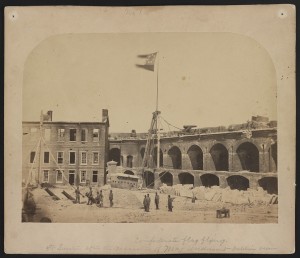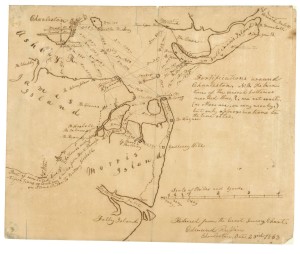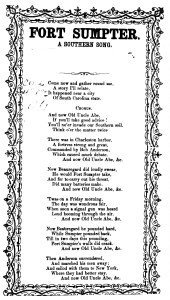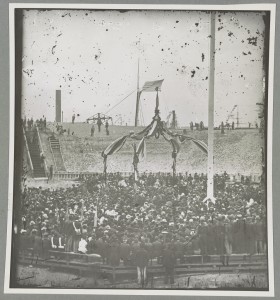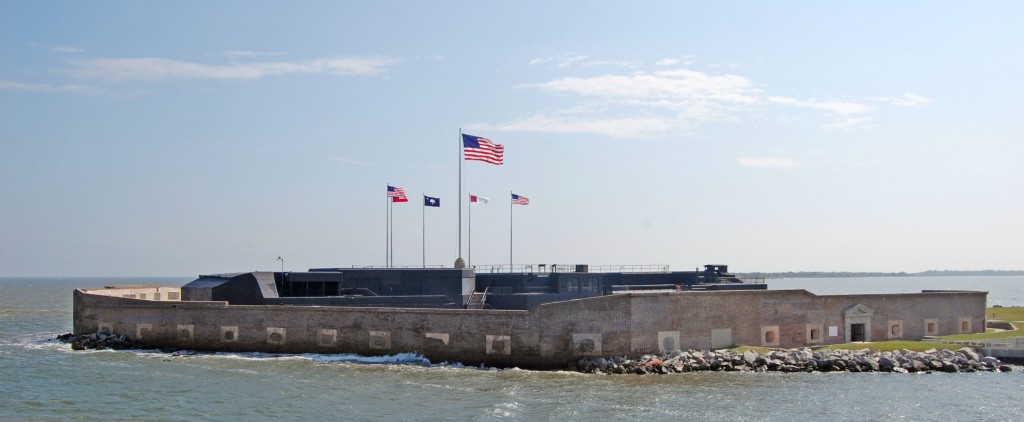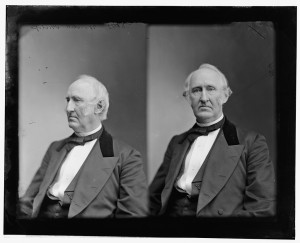If delegations from the rebel states are re-admitted to the Congress without conditions, could they stifle the ratification of the Thirteenth Amendment outlawing slavery?
From The New-York Times July 9, 1865:
Letter from Wendell Phillips.
THE RESTORATION OF THE SOUTHERN STATES.
The following letter from WENDELL PHILLIPS appears in the Anti-Slavery Standard this week:
To the Editor of the Standard:
Let me call your attention an[d] that of the country to the danger pointed out in the following extract from the letter of an acute and vigilant friend:
President JOHNSON is rapidly issuing proclamations for the reorganization of all the rebel States. The Governors appointed are old politicians, who know all the ropes. Is it not their design, and will they not be able, before next December to make all their new Constitutions and elect new Governors and full Congressional delegation? Then what is to prevent those States from presenting themselves, fully accredited, on the floor of the new Congress, and participating in its organization. They will claim, as President JOHNSON does, that their States have never been out of the Union; that the government declares (as it will) the rebellion suppressed and military occupation withdrawn, and that they now resume their relations with the Federal Government, which have been only temporarily suspended. In this claim they will be backed by the whole power of the Administration, and this is the trap to be sprung on us. The Clerk of the House, you remember, presides until a new Speaker is elected. If he had firmness enough to refuse to receive the credentials of these rebel members, and to refuse to count their votes, this danger might be averted. But can we count on so much virtue in any politician? We may, perhaps, ba[???]ie this plan in the Senate. That body being always organized, no members can be admitted without the concurrence of the rest. But how long would even the Senate stand up against the action of the House of Representatives, and enormous pressure of every other kind?
I believe that this attempt will be made at the next meeting of Congress. Possibly South Carolina might be kept out, but even that is doubtful. I may exaggerate the importance of this matter, but that the attempt will be made there can be no doubt.
The importance of these suggestions cannot be overestimated, and every means should be taken to avert this peril. We have been counting on the possibility of rallying a majority of the legally elected members of Congress to keep the members from the rebel States out of Congress, at least till they consented to certain conditions — ratifying the anti-slavery amendment and other matters. Some sanguine friends believe they can be kept out until they agree to give the negro the right to vote. But, according to this rebel plot, the Southern members may enter Congress without agreeing to the anti-slavery amendment, or to any other conditions. Once inside the doors, they may take part in all the discussions and votes affecting themselves and their claims, and may checkmate the anti-slavery amendment itself. In fact, our fate rests in the hands of the Clerk of the House of Representatives. I know nothing about him; but how few men in the nation could be trusted to stand firm in such a post? The whole North should be roused to guard against this danger. If the rebel States, in their present mood, can in any way get inside Congress, and wield eighty-four votes there, and more especially if they can get there unpledged to any conditions, and wield those votes, then truly the “South” will be as strong as ever, and the negro almost as defenceless. Yours,
WENDELL PHILLIPS.
As it turned out the Thirteenth Amendment was ratified with the support of previously seceded states, although some of those states tried to attach conditions:
When South Carolina ratified the amendment in November 1865, it issued its own interpretive declaration that “any attempt by Congress toward legislating upon the political status of former slaves, or their civil relations, would be contrary to the Constitution of the United States”. Alabama and Louisiana also declared that their ratification did not imply federal power to legislate on the status of former slaves. During the first week of December, North Carolina and Georgia gave the amendment the final votes needed for it to become part of the Constitution. (references at Wikipedia)
150 years ago today Wendell Phillips was thinking beyond the Thirteenth Amendment:

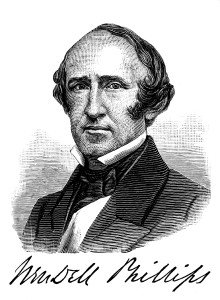
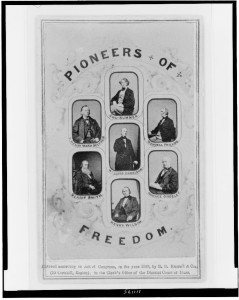
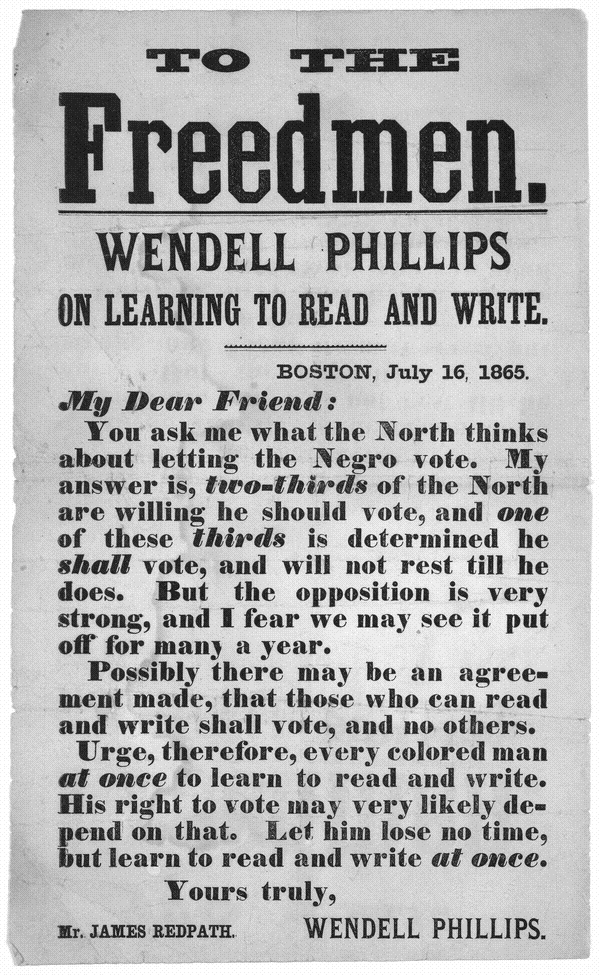
![Soldier's graves near cemetery no. 2 (Wilderness) (by G. O. Brown, Baltimore, MD : American Scenery (Stereoscopic) 267 West Lexington St., [1865]; LOC: http://www.loc.gov/pictures/item/2015647109/)](https://www.bluegrayreview.com/wp-content/uploads/2015/07/1s03972v-1024x521.jpg)
![Soldier's graves of the 5th A.C. (i.e. Army Corps) Wilderness battle field (by G. O. Brown, Baltimore, MD : American Scenery (Stereoscopic) 267 West Lexington St., [1865]; LOC: http://www.loc.gov/pictures/item/2015647105/)](https://www.bluegrayreview.com/wp-content/uploads/2015/07/1s03968v-1024x515.jpg)
![Rebel grounds, near triangle of death. Wilderness field (by G. O. Brown, Baltimore, MD : American Scenery (Stereoscopic) 267 West Lexington St., [1865]; LOC: http://www.loc.gov/pictures/item/2015647112/)](https://www.bluegrayreview.com/wp-content/uploads/2015/07/1s03975v-1024x515.jpg)
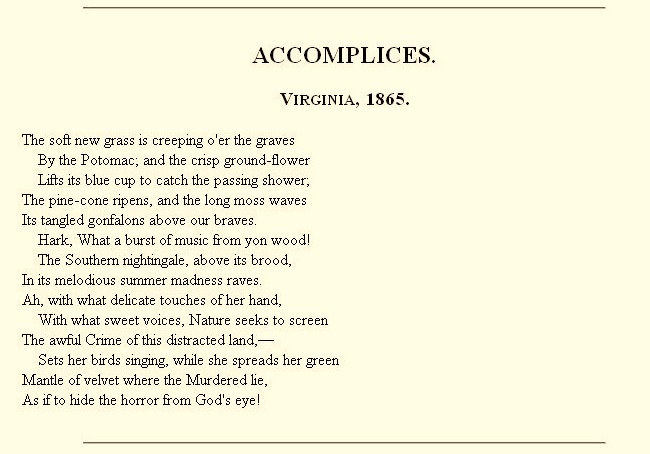
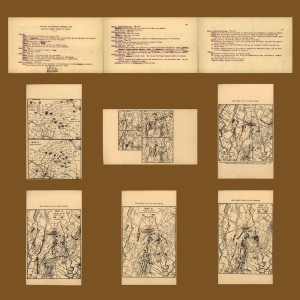
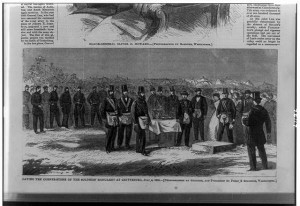
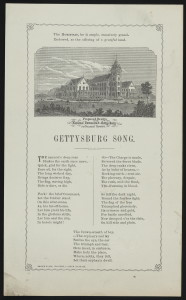
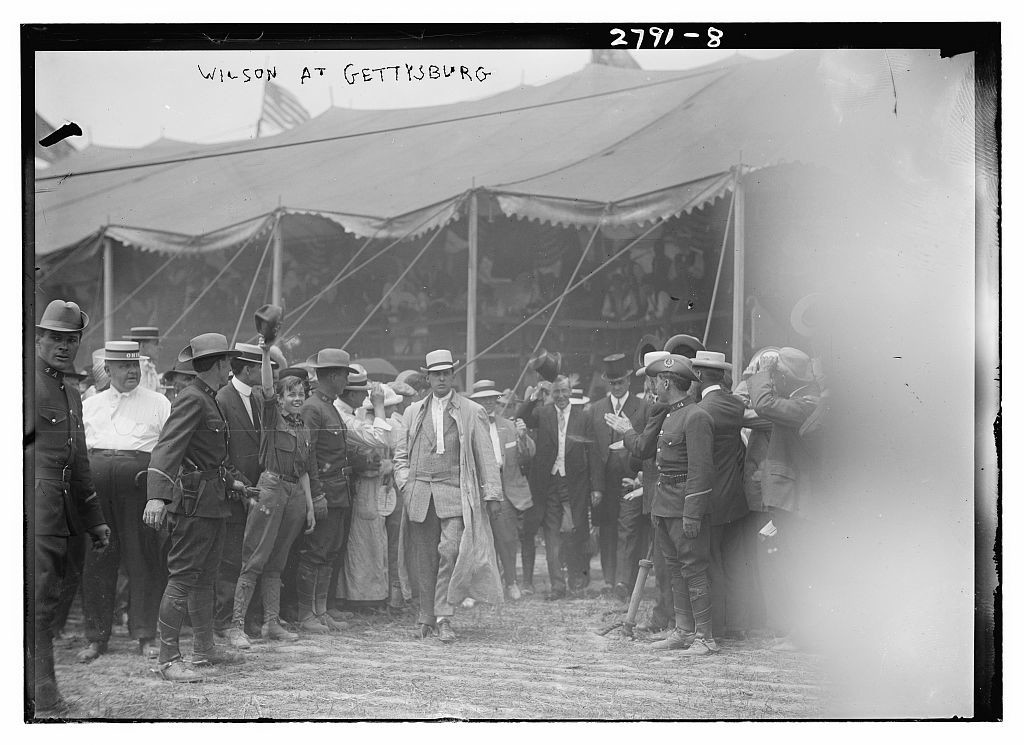
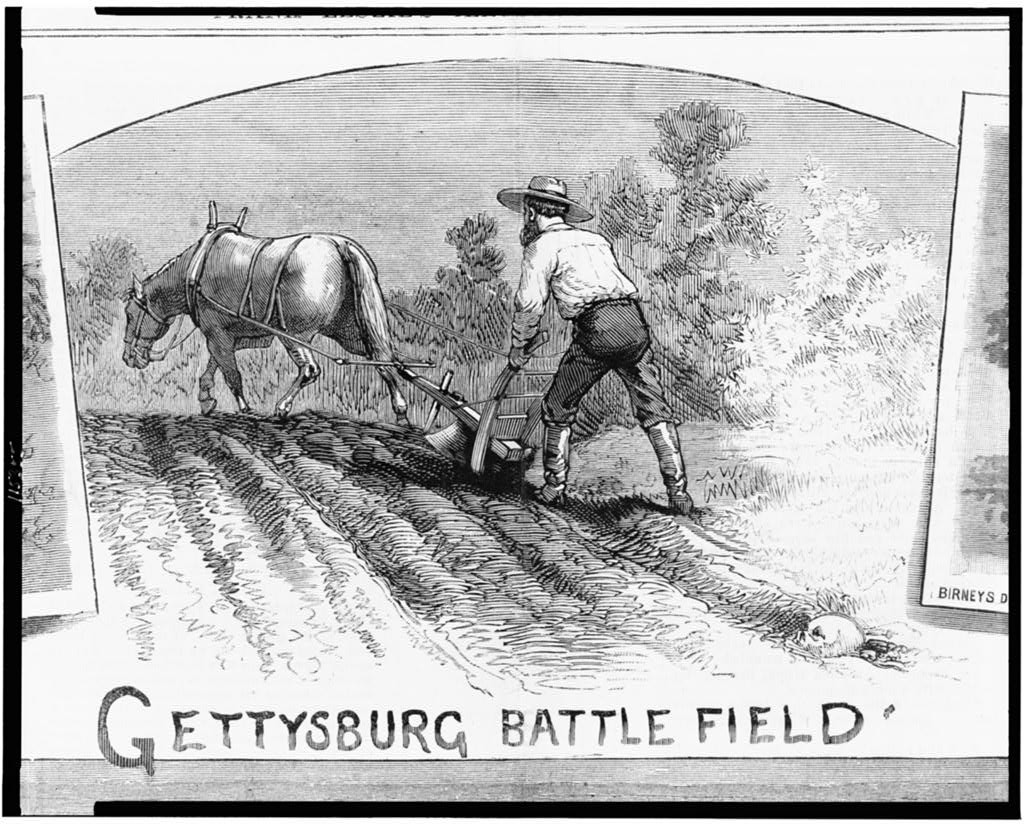
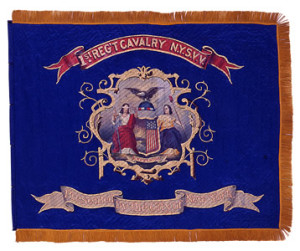
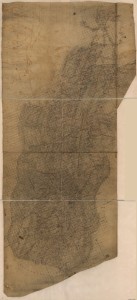
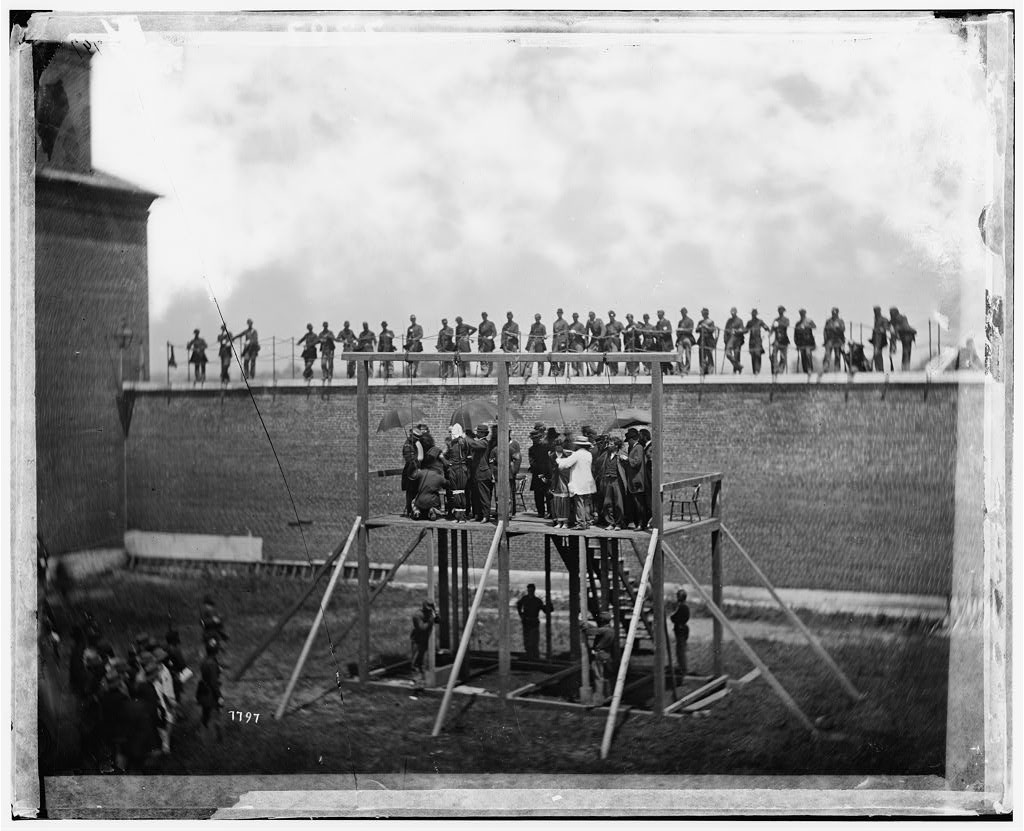
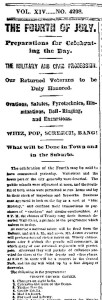


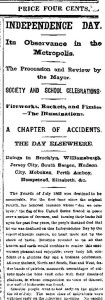
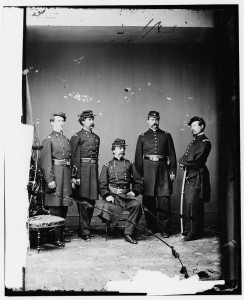
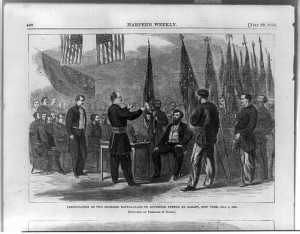
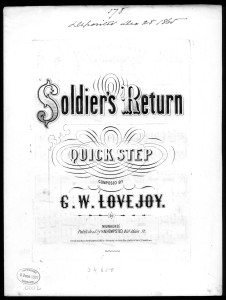
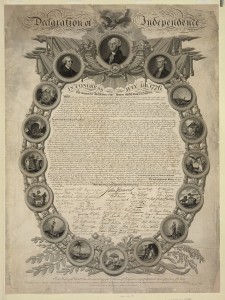
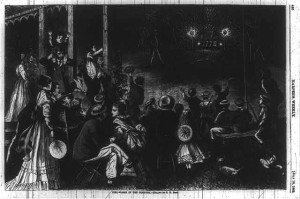
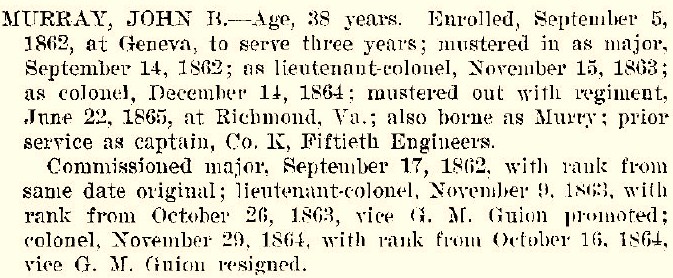
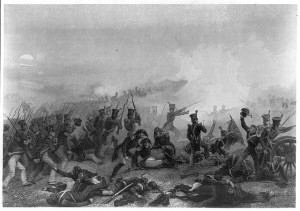
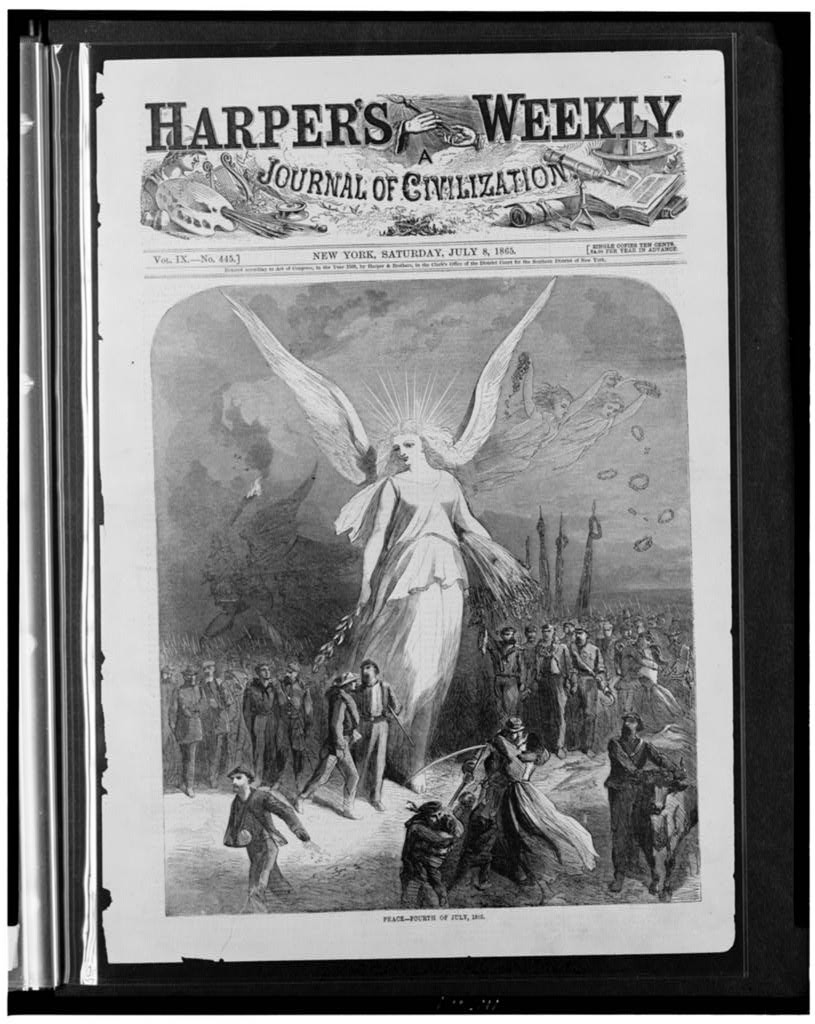
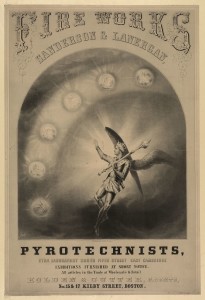
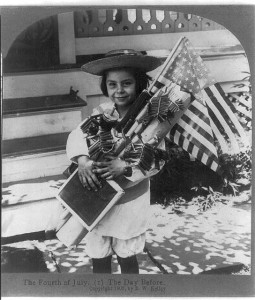
!["[Portrait of Maj. Gen. George G. Meade, officer of the Federal Army, and corps commanders, vicinity of Washington, D.C., June 1865: Horatio G. Wright, John A. Logan, Meade, John G. Parke, Andrew A. Humphreys] " (Library of Congress)](https://www.bluegrayreview.com/wp-content/uploads/2015/06/03703v-300x242.jpg)
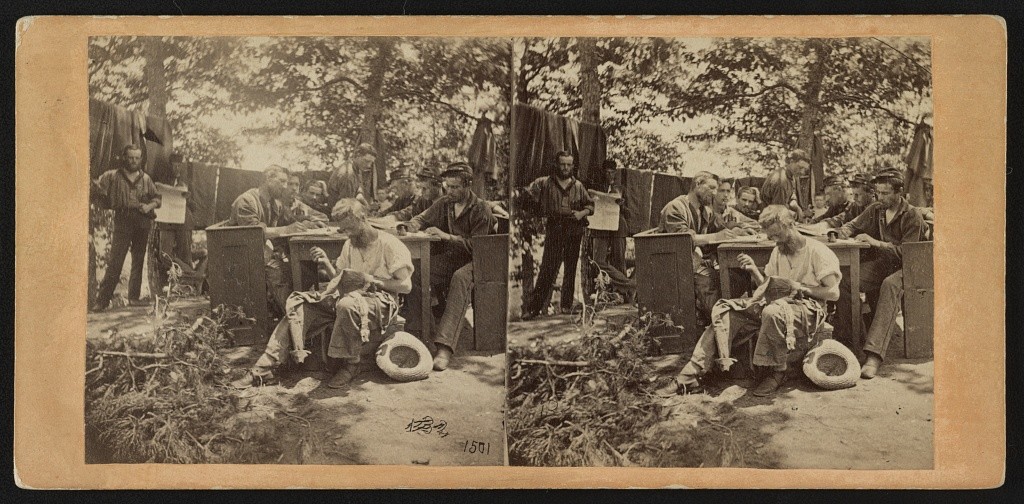
![[Portrait of Maj. Gen. George G. Meade, officer of the Federal Army, and staff, vicinity of Washington, D.C., June 1865] (LOC: http://www.loc.gov/item/cwp2003000354/PP/)](https://www.bluegrayreview.com/wp-content/uploads/2015/06/03778v-1024x826.jpg)
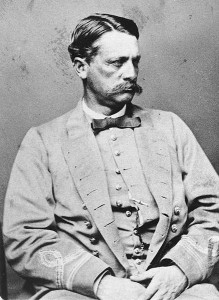
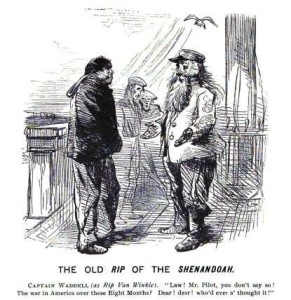
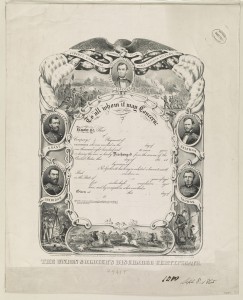
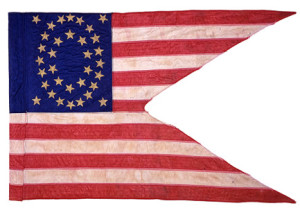
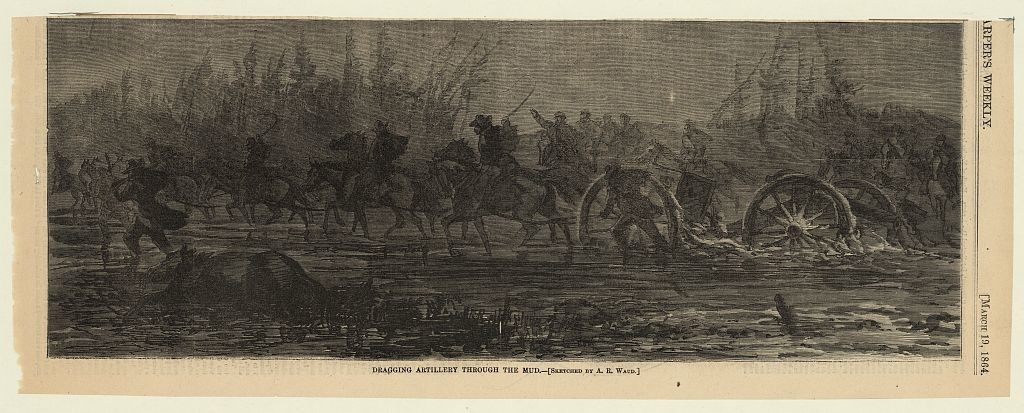
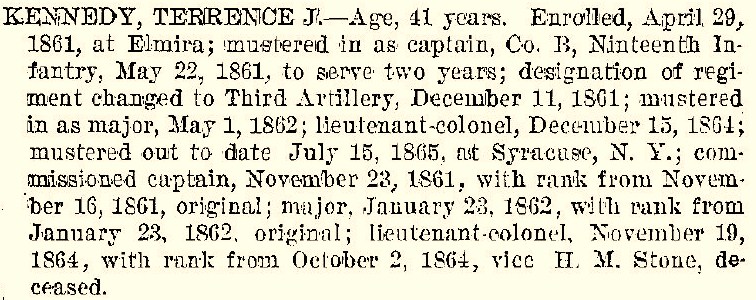
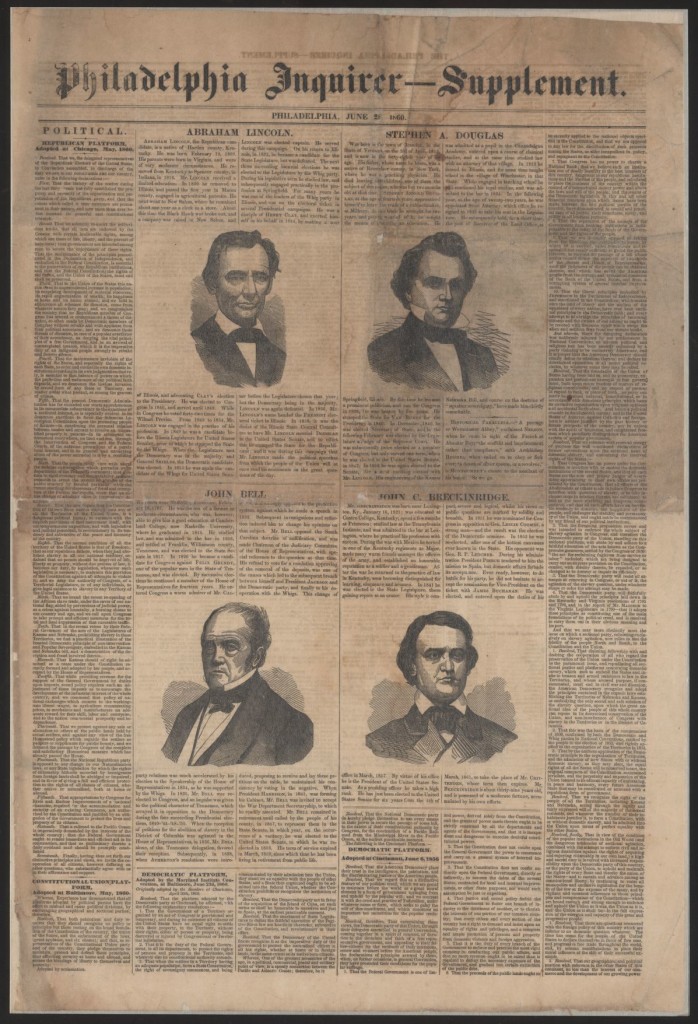
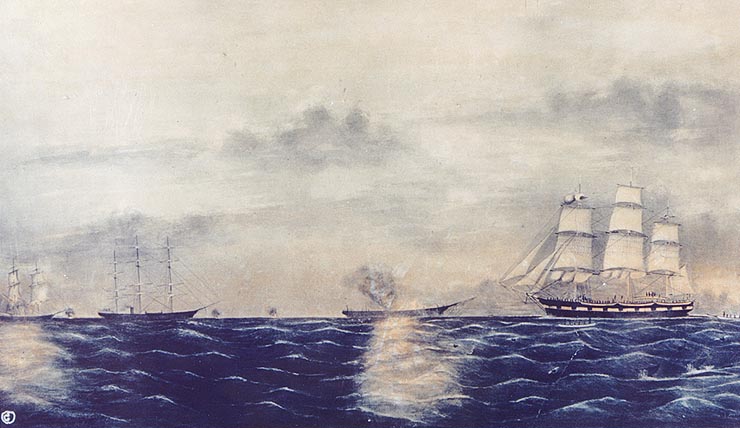
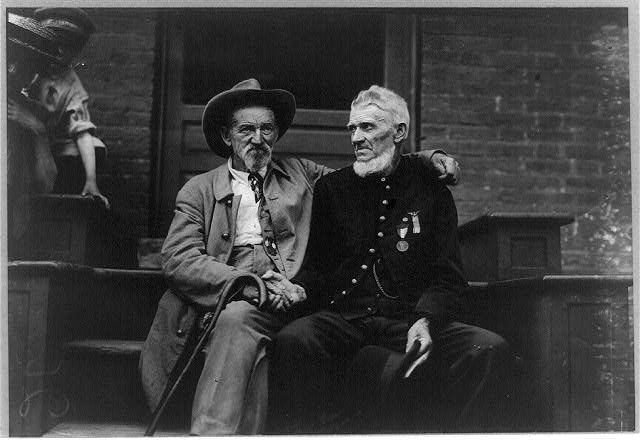
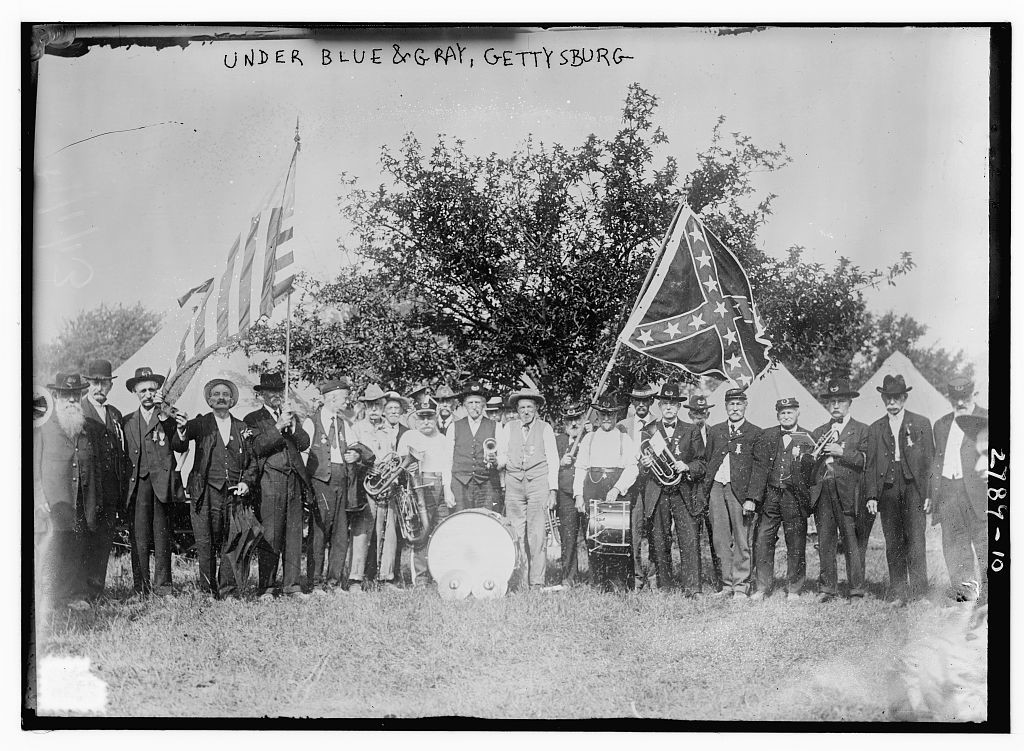
![The reunion at "Bloody Angle" - Pickett's men in for[e]ground; Union men lined against wall (1913; LOC: http://www.loc.gov/item/ggb2005013846/)](https://www.bluegrayreview.com/wp-content/uploads/2015/06/13846v-1024x749.jpg)
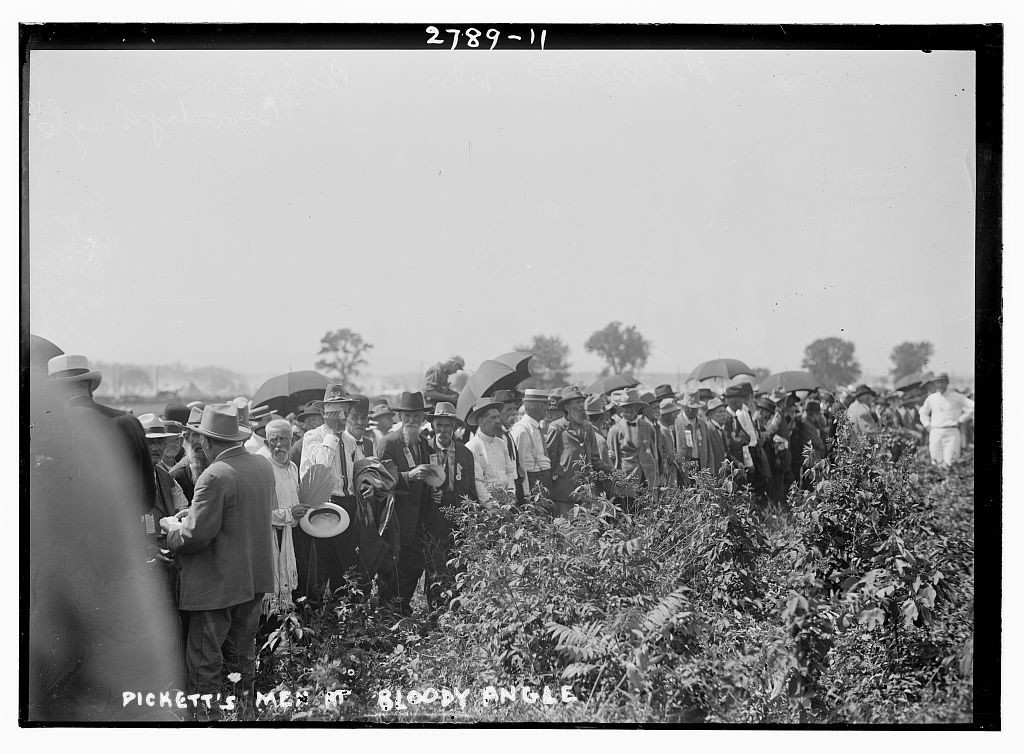
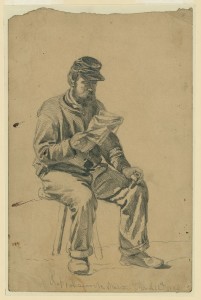
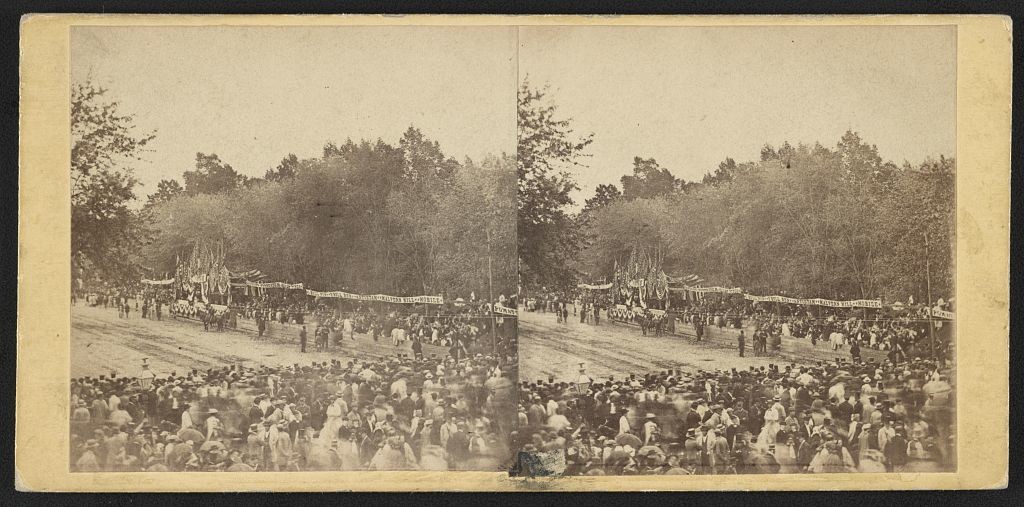
![Mr. Edmund Ruffin, said to have fired first shot against Fort Sumter (between ca. 1860 and 1865]; LOC: http://www.loc.gov/item/99471869/)](https://www.bluegrayreview.com/wp-content/uploads/2015/06/3c23816v-247x300.jpg)
